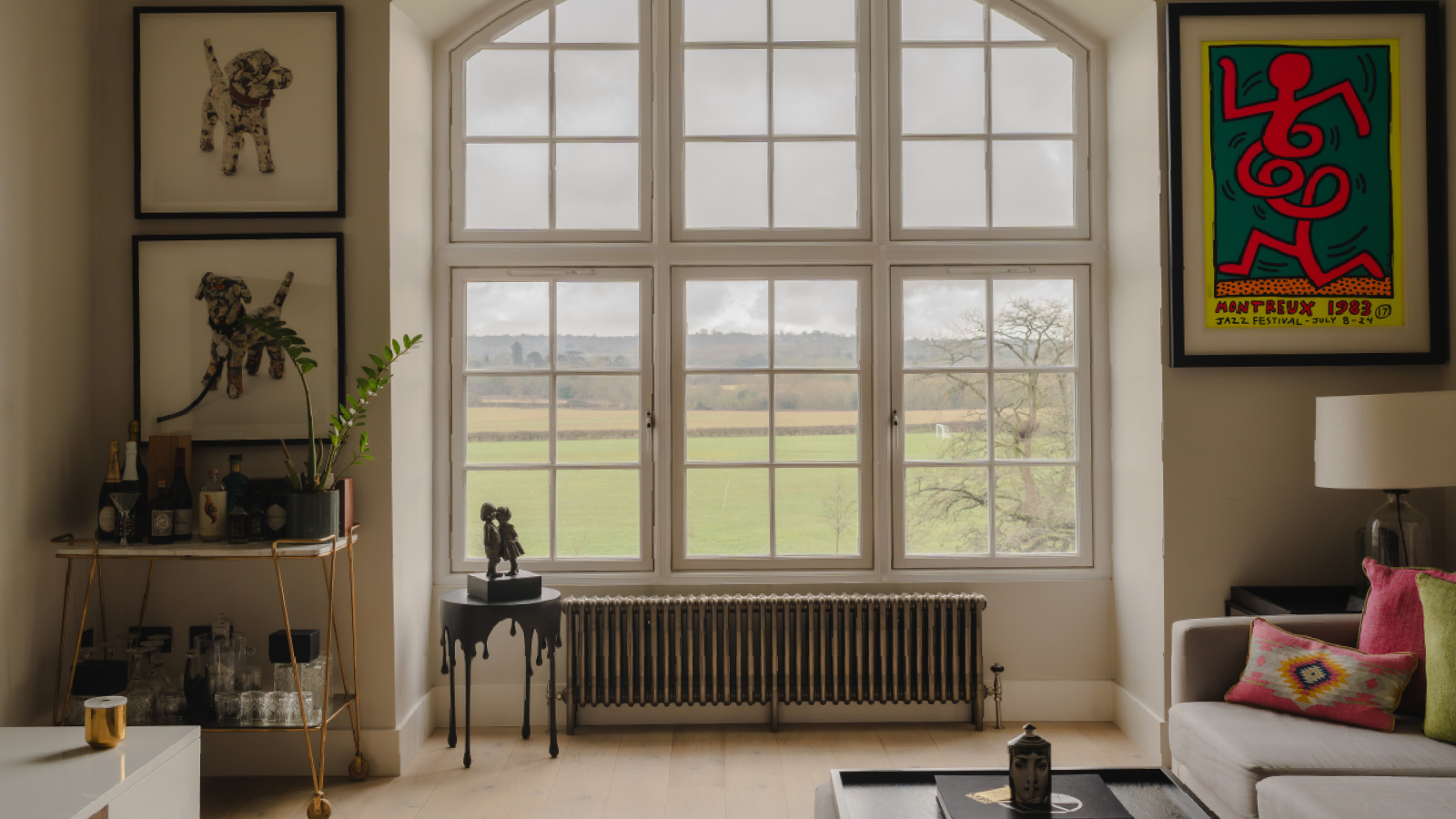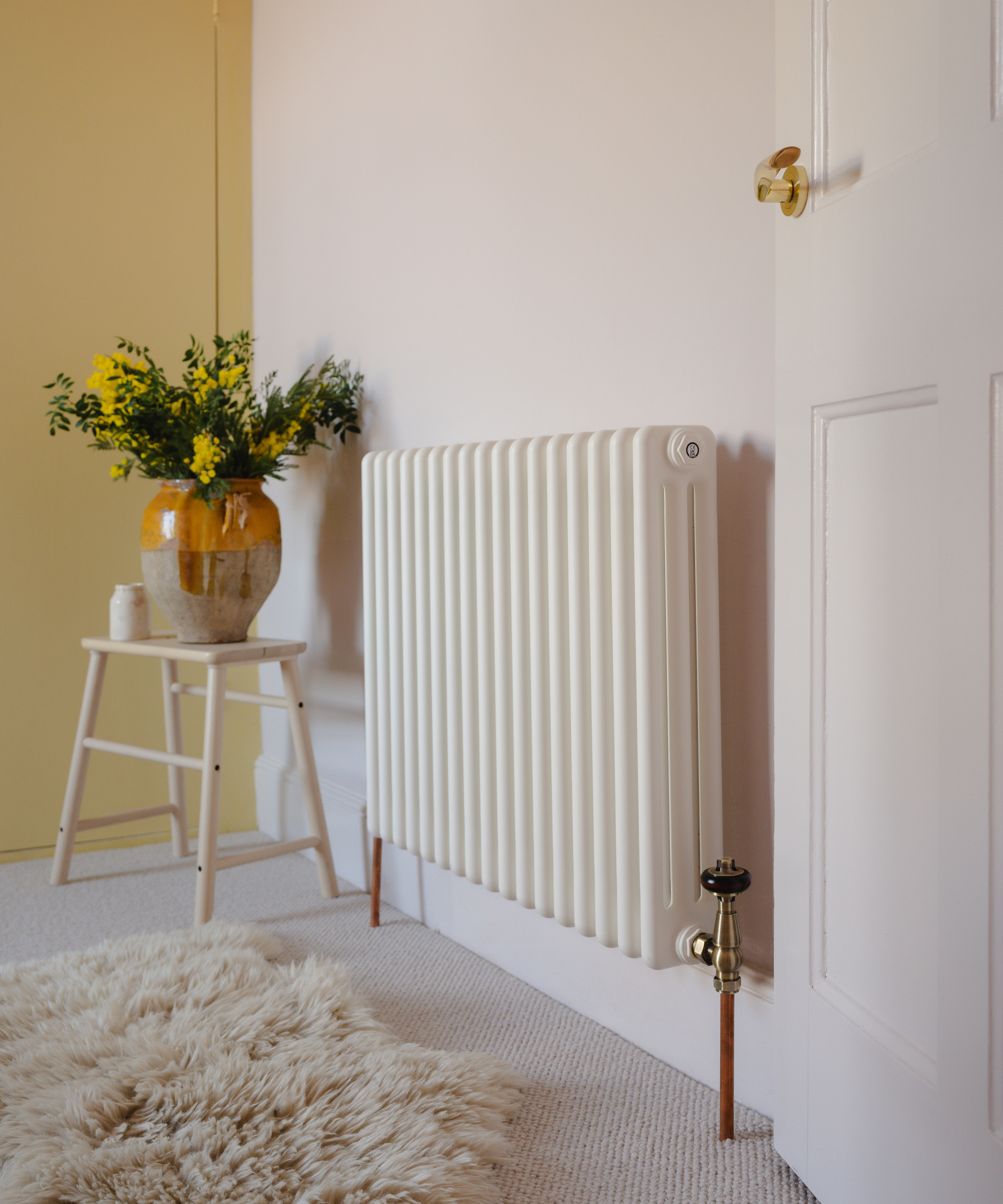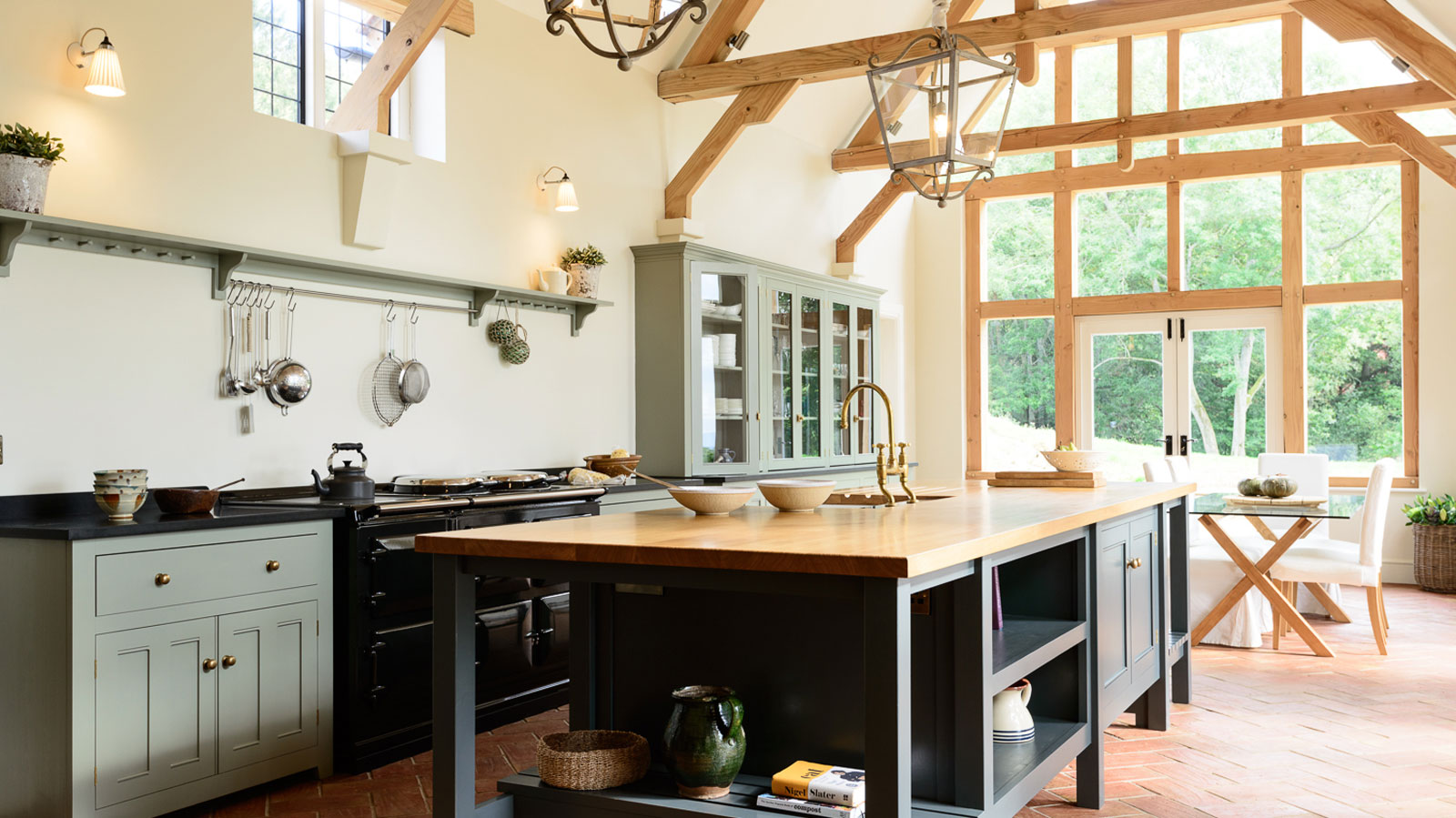Are noisy radiators disturbing your peace and quiet? We explore the different sounds and what they mean
Of all the things that go bump in the night, noisy radiators are some of the most annoying. From clicking to hissing, bangs to bubbling here's how to identify the noise, its cause and when to be concerned

Bring your dream home to life with expert advice, how to guides and design inspiration. Sign up for our newsletter and get two free tickets to a Homebuilding & Renovating Show near you.
You are now subscribed
Your newsletter sign-up was successful
Although it's natural to hear the odd sound escaping from your radiators, noisy radiators can be more disturbing than you expect – particularly if you set them to come on early in the morning before you wake up.
But, are noisy radiators something to worry about or can you fix the problem yourself? Or, is the noise something you should accept, and in fact a sign that they are working as they should?
We asked radiator experts to help us tune in to when noisy radiators need to be listened to, what the noises mean and how we can get them to pipe down.
What do noisy radiators sound like?
There isn't one definitive description you can use for noisy radiators say the experts. Instead, it's a range of noises, some of which you may recognise from your own central heating system.
"Noises can range from gentle gurgles and hisses to louder banging, clanging or knocking," explains Nick Duggan, managing director of The Radiator Centre.
So, what do the different noises mean and when should we be worried? "A soft bubbling or trickling is usually nothing to worry about, while sharper or repeated bangs can indicate a deeper issue in the system," explains Nick.
"Even well-maintained heating systems can make a few sounds as they expand, contract or circulate water," says Nick, "but these may die down over time as the system finds its rhythm."
Bring your dream home to life with expert advice, how to guides and design inspiration. Sign up for our newsletter and get two free tickets to a Homebuilding & Renovating Show near you.
However, while most noises are easily rectified, understanding what each noise means and the reason it's happening can help you make sure your noisy radiators become quieter quicker.


Nick has over 20 years of experience in central heating and radiators, leading the team at one of the UK's largest independent suppliers.
Types of radiator noise, the causes and the solutions
According to John Klee, heating technology expert at BestHeating, noisy radiators in general make five different types of noise, and their causes can be categorised as follows:
1. Gurgling
“One of the most common radiator noises is gurgling and luckily this is a simple issue to fix," says John. "A gurgling sound indicates trapped air that is desperate to escape - having built up over time. It also means there are cold spots on the radiator, and the solution to this is to bleed your radiators."
"This is likely to have happened due to a lack of maintenance, radiators must be bled at least once a year to work efficiently during the winter months. Take the time to loosen the valves with a bleed key to release the air," says John. "You'll get rid of the noise and make radiators warmer, and more cost-effective.”
2. Banging
John says: “A banging noise is better known as ‘kettling’, which refers to a buildup of limescale within the central heating system rather than the radiators. If you experience this, it is recommended you turn off your heating system and drain the radiators to allow trapped air and water to escape, allowing the issue to be fixed temporarily.
"If the banging persists, then a heating system power flush could be needed sooner rather than later," he warns. "This will remove all grime and limescale from the boiler and increase the efficiency of your heating. Areas with hard water are more likely to experience this problem, such as the Southeast.”
3. Whistling and tapping
“If a whistling or tapping noise emanates from radiators, these sounds usually point to a basic error with thermostatic valves," says John. "When a radiator whistles, it signals that there is too much water flowing through them. A simple change – turning the radiator valve to full – should combat this.
"Newly installed radiators can also cause valves to tap," adds John. "It often points to loose components such as fittings or brackets within the radiator or heating system. To stop these noises, inspect the radiator for any loose parts and tighten where needed. If the tapping persists, then this could be due to a buildup of limescale within the pipes and radiators, so use a non-acidic cleaner to flush out the system, just make sure it is turned off first.”
4. Clicking and ticking
Although they may be annoying, commonly heard clicking and ticking noises aren’t dangerous, John reassures us.
“When your heating system is in use, often the noises that can be heard are natural. For example, a clicking sound is the result of expansion of metal as hot water flows into a radiator, so should be expected when the heating system is on.
"Similarly, a ticking noise often happens when radiators are heating up or cooling down but this is normal," says John. "There isn’t a way to prevent these but it’s good to have the knowledge that there isn’t an issue. Any noise will sound worse when there is silence throughout a home, but be rest assured that if you service a boiler yearly and feel toasty in bed, then it is likely that your system is working as normal.”

John is a heating technology expert at Best Heating, where for over nine years he has dedicated himself to demystifying home heating for our customers. He specialises in creating clear, data-driven guides and how-to articles by collaborating directly with Bestheating's team of certified experts and product engineers.
FAQ
When is a noisy radiator no longer fit for purpose?
Although most noises can be resolved, there may be times when you need to replace a radiator confirms Nick Duggan.
"Sometimes, if a radiator is very old, heavily corroded or beyond practical repair, replacement is the most effective solution. It’s rare, but when maintenance no longer restores performance or the radiator is prone to leaks, a new radiator can bring peace of mind."
Not struggling with noise but having other problems instead? Find out why your radiator isn't heating up correctly and how to fix it. And, avoid creating future problems if you're upgrading your heating system by following our guide to installing radiators to make sure you choose and fit the right one correctly.

Sarah is Homebuilding & Renovating’s Assistant Editor and joined the team in 2024. An established homes and interiors writer, Sarah has renovated and extended a number of properties, including a listing building and renovation project that featured on Grand Designs. Although she said she would never buy a listed property again, she has recently purchased a Grade II listed apartment. As it had already been professionally renovated, she has instead set her sights on tackling some changes to improve the building’s energy efficiency, as well as adding some personal touches to the interior.

